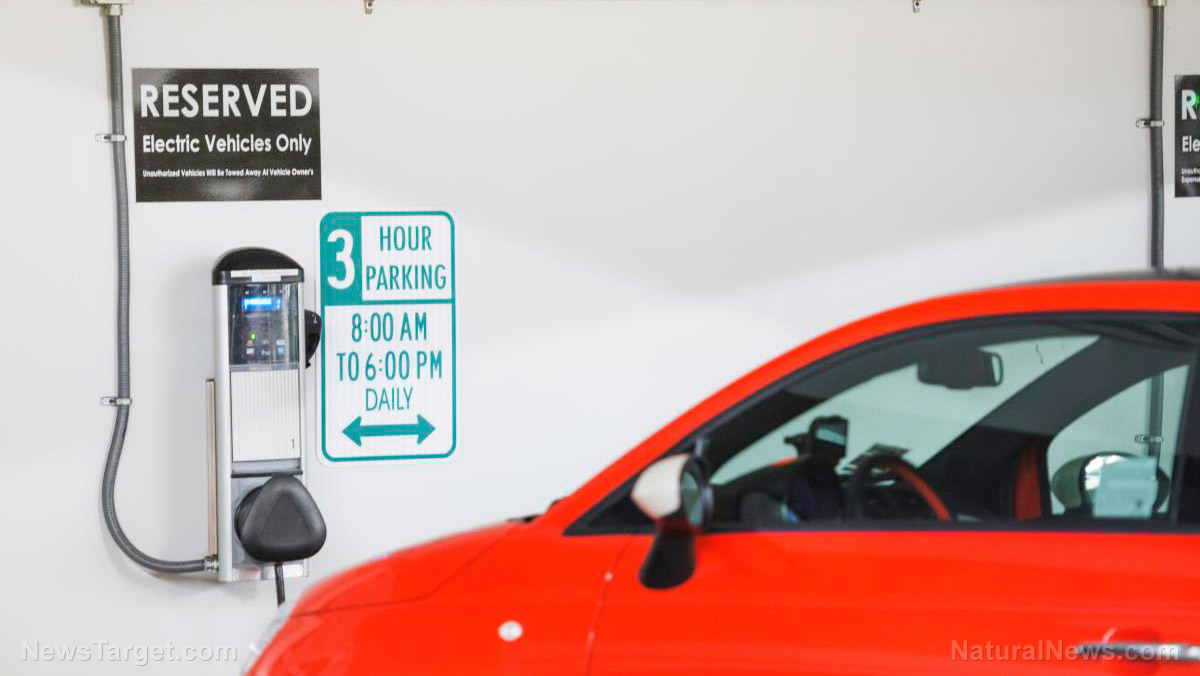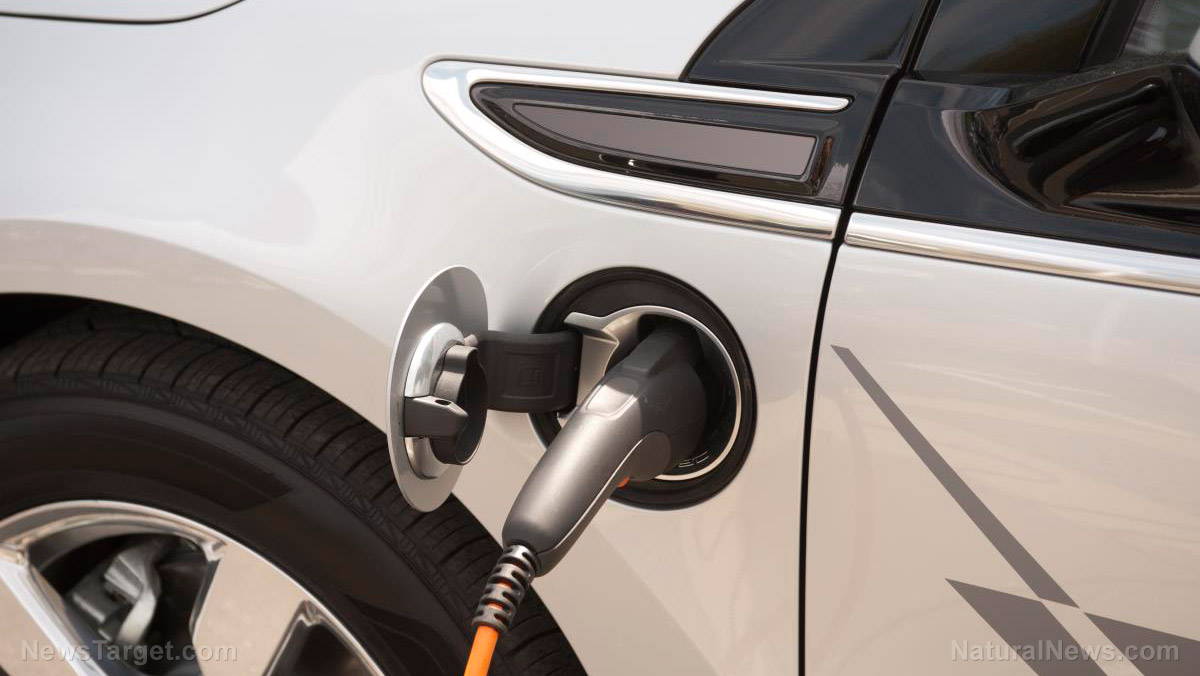Electric cars in Florida catching fire after Hurricane Ian
10/11/2022 / By Ramon Tomey

After Hurricane Ian battered Florida in late September 2022, firefighters in the Sunshine State now have to face a new disaster – electric vehicles (EVs) spontaneously combusting.
The hurricane caused massive flooding in the state, inundating many EVs. With Florida being the second largest EV marker in the U.S. after California with 95,000 registered vehicles, firefighters have to deal with an equally big disaster as Ian – if not more massive.
In an Oct. 6 tweet, Florida State Fire Marshal Jimmy Patronis Jr. warned of the risk of EVs spontaneously catching fire.
“There’s a ton of EVs disabled from Ian,” he tweeted. “As those [EV] batteries corrode, fires start. That’s a new challenge that our firefighters haven’t faced before – at least on this kind of scale.” Patronis added that “it takes special training and understanding of EVs to ensure these fires are put out quickly and safely.”
The state fire marshal, who also serves as Florida’s chief financial officer, shared videos of firefighters in Naples, Florida trying to deal with a Tesla EV that spontaneously ignited. In one of the videos, bystanders can be overheard saying that the firemen had already used hundreds of gallons of water but to no avail.
Erich Wachsman, director of the Maryland Energy Innovation Institute, said the qualities that make lithium-ion battery cells powerful enough to move passenger vehicles can also make them vulnerable to catching fire. Closely-placed electrodes that increase the chance of a short circuit, coupled by a flammable liquid electrolyte that fills the battery cells, increase the risk of electric cars burning.
“This flammable liquid could get into what’s called a thermal runaway situation where it just starts sort of boiling, and that results in a fire,” he elaborated.
Emma Sutcliffe, project director of Melbourne, Australia-based EV FireSafe, explained that EVs with lithium-ion batteries burn hotter and faster. They also require far more water to be fully extinguished. Sutcliffe warned that the batteries can re-ignite hours or even days after the fire is initially controlled.
EV batteries cause house fires in Maryland and Virginia
EV batteries can also start fire while charging. Defective battery cells that malfunction while charging were blamed for house fires that occurred in Maryland and Virginia. (Related: Electric vehicle charging causes house fires that result in substantial losses.)
An April 1 house fire in Damascus, Maryland caused by a charging EV resulted in $350,000 worth of damages. One person in the house had to be rescued during the blaze. While no injuries were reported, the fire displaced a family of four and their pets. Montgomery County Fire and Rescue Service (MCFRS) spokesman Pete Piringer said the fire started in the house’s garage near the front end of a Chevrolet Volt that was charging.
Four days later, a lithium battery inside an electric scooter that overheated while charging caused an apartment fire in Bethesda, Maryland. The conflagration resulting in about $150,000 worth of damages also displaced three people, with one resident suffering minor burns as a result.
According to Piringer, MCRFS firefighters responded to the scene after they saw smoke coming out of a unit on the third floor. They managed to extinguish the fire almost half an hour later.
An April 18 house fire in Ashburn, Virginia, meanwhile, started from the EV that was being charged in the garage. The Loudoun County fire marshal ruled the blaze accidental, pointing to the vehicle’s malfunctioning charging system as the culprit.
Firefighters from the Loudoun County Fire and Rescue Department responded to a 911 call for smoke visible from the garage. The blaze caused $15,400 in damages, but the home owner and other occupants managed to escape.
FlyingCars.news has more stories about the failures of EVs.
Watch this video of an electric bus in France spontaneously bursting into flames.
This video is from the FalconsCAFE Sharing is caring channel on Brighteon.com.
More related stories:
Op-ed: Increased lithium demand for electric vehicle batteries comes with a price.
Floridians would have faced nightmare scenario if electric vehicles were the norm: Analysis.
Sources include:
Submit a correction >>
Tagged Under:
Dangerous, disaster, electric cars, electric vehicles, EV batteries, EV charging, firefighters, flooded cars, flooding, Florida, house fires, Hurricane Ian, lithium ion batteries, malfunction, maryland, national security, products, property damage, spontaneous combustion, Virginia
This article may contain statements that reflect the opinion of the author
RECENT NEWS & ARTICLES
COPYRIGHT © 2017 INVENTIONS NEWS




















